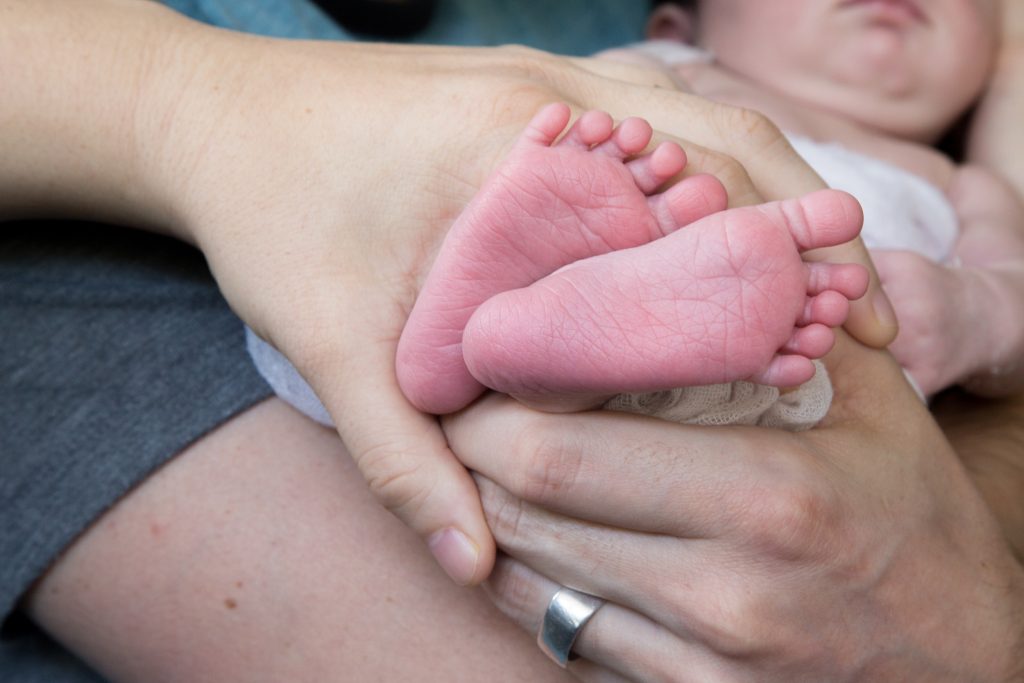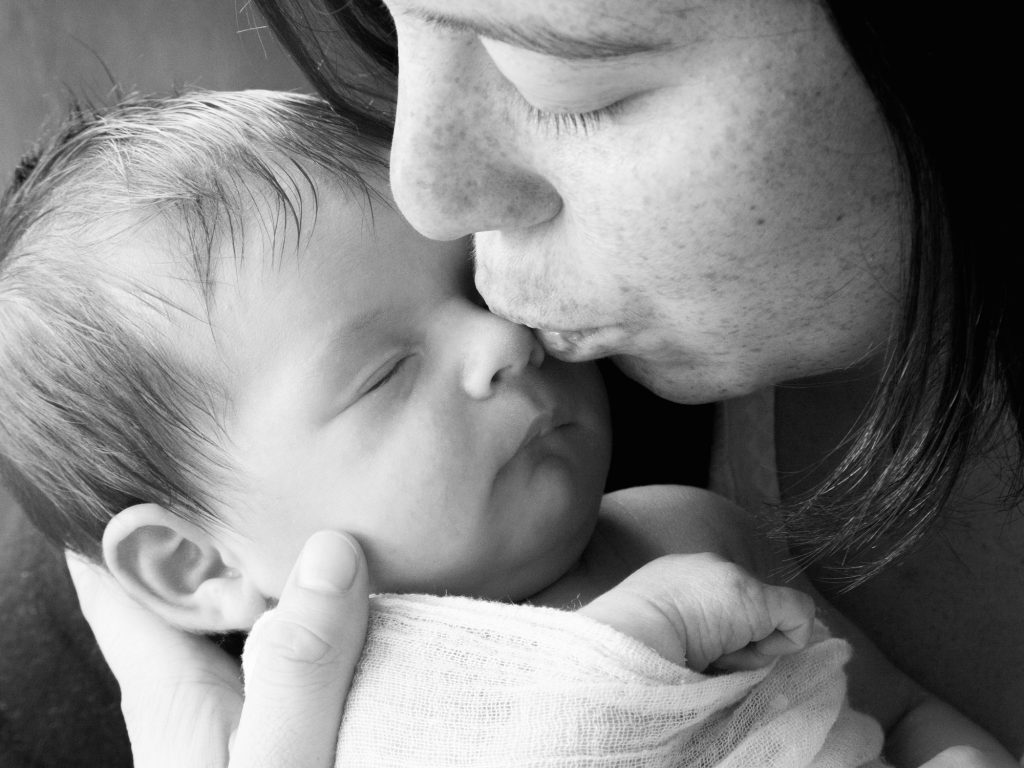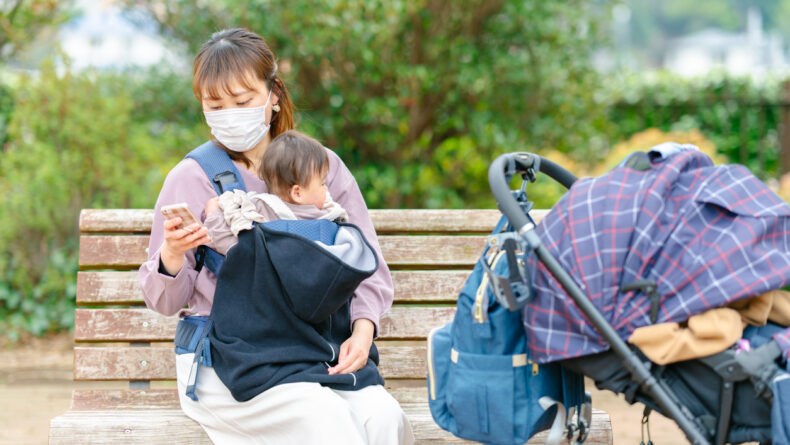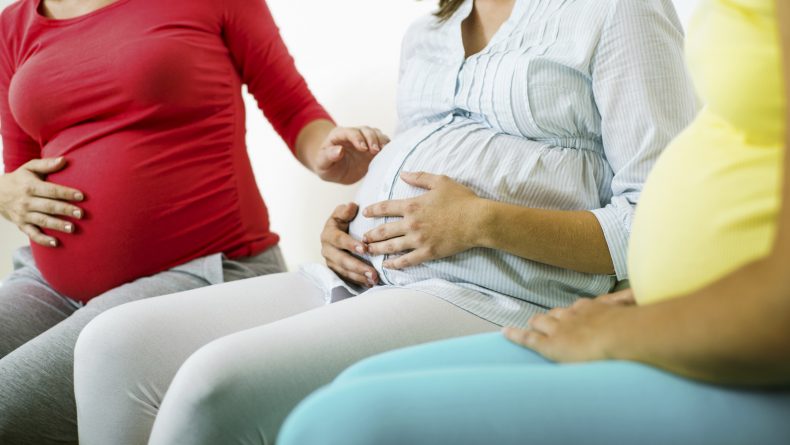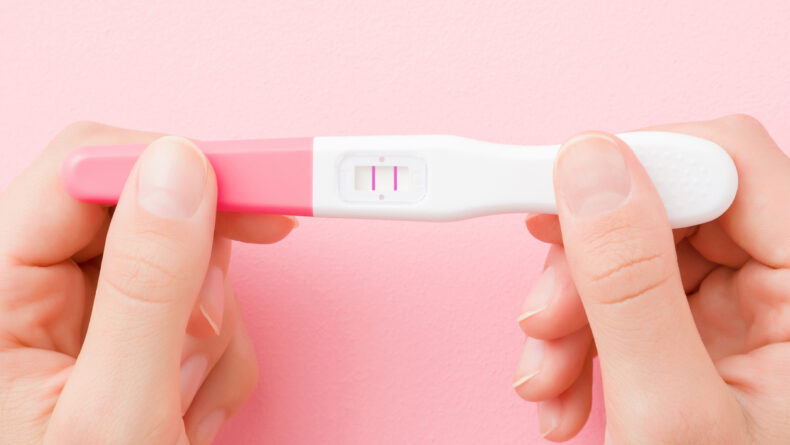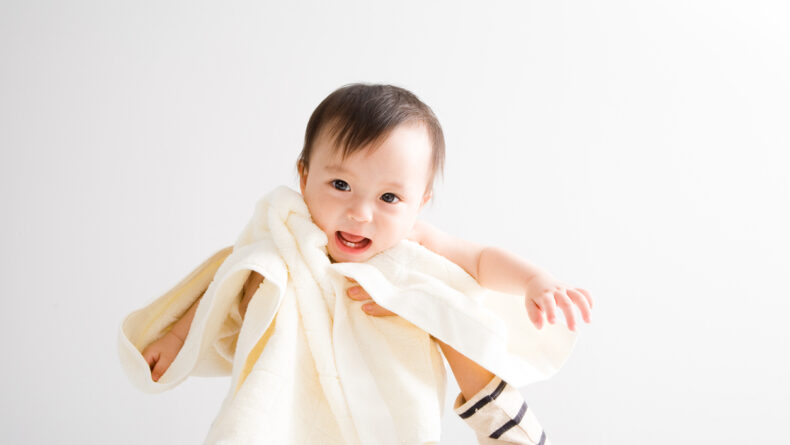Dealing With Postpartum Depression
Don't Wait To Seek Help
Worldwide, postpartum depression is documented to occur in more than 10% of moms, and can affect dads too. Yet, a lack of understanding and the stigma attached to mental health disorders often discourages sufferers from seeking help. Here, we share the story of one foreign mom in Japan whose long journey teaches us an important lesson.
“In the first 10 months of [my son’s] life I cried more than I had in the previous five years. It was different from hormonal crying. There was this crushing sadness and guilt that I couldn’t get out of. It was crying for hours and being so, so sad and not being able to shake it…and I’m not a crier,” Sarah laughs as she recalls her days navigating the murky waters of postpartum depression (PPD) following the birth of her first son, Jack.
He sits next to her in his stroller, a happy toddler contentedly munching on Cheerios as we adults talk. We are sitting alongside one of Tokyo’s scenic canals, sipping on iced lattes and taking in the charming atmosphere. The water flows peacefully beside us and bold sparrows prance closer hoping to pilfer our leftovers. Sarah now looks relaxed and exudes peace and joy even as she recounts some of her darkest days.
It’s a far cry from where she found herself shortly after becoming a mom.
Suffering from post-traumatic stress after Jack’s dramatic birth via emergency c-section, she quickly found herself in a place she never thought she would be. Those days, she said, were spent on the usual tasks of early motherhood, but with constant crying.
Outgoing and sociable, Sarah was not in the habit of saying no and had always been quick to take on responsibilities, including a leadership role at her church. She had expected to continue in a similar form as a mom, just like the many multiple-hat-wearing, capable moms she saw around her. When she found she couldn’t, she was extremely disappointed in herself and felt that everyone around her was as well. She found herself trapped in a pattern of negative self-talk. “I [was] living in a constant internal atmosphere of just feeling like I had failed.”
Every day I was getting up and feeling like I was failing as a mother. Failing as a wife. And that was just so far from who I [am].
Many women experience a “weepy” day or “baby blues” in the first days after giving birth. PPD is usually characterized as depression that extends beyond that and is said to be caused by a mixture of hormonal and other physical changes, as well as the usual stresses that arise when entering motherhood.
Experiencing some of the symptoms attributed to PPD is very natural for any new mom. Sleep deprivation and being abruptly handed the responsibility to nurture a human life alone can trigger feelings of guilt and sadness, lack of energy and other symptoms that are red flags for PPD. However, experiencing these intensely and continuously for two weeks or more points towards PPD. Thoughts of self-harm, suicide or hurting your baby or partner might also surface.
Unfortunately, despite the very real possibility that such symptoms are an indicator of illness, many moms consider that they just come with the territory and will pass. This might be unwittingly confirmed by often-touted, well-meaning advice such as “just remember how blessed you are to have a baby, you’ll get through it”, which effectively brushes off the problem as minor and temporary. Without receiving professional help, such moms might continue suffering needlessly for months, even years, with worsening symptoms that impact the whole family.
PPD is, after-all, a medical illness for which a range of treatments are available just like any other.
Sarah had herself seen friends go through similar problems. Friends who became different people for that period. Even after, she said, “there was a shadow that remained on them, a sort of brokenness that stayed with them because it can go on a long time if you don’t get help.”
Early on, Sarah also thought that her struggles were just for a season. She’d read the books and realized that the list of PPD symptoms matched what she was experiencing, but just didn’t really know what to do about it. As a strong Christian, she spent time daily seeking encouragement from the bible and while she believes her faith helped her, she was still struggling. She found herself just waiting for things to get better.
The courage to seek help
“The way that I was acting was completely not myself — to the point where I realized, ok there is something else going on here. My responses were just so far beyond the realm of what was normal. I found myself in the routine of spending the weekdays just pulling it together for the weekend.”
Sarah finally realized things weren’t improving, so she and her husband sought help. This came in the form of an old friend in Australia who is a pastor and clinical psychologist.
The two key pieces of wisdom she received from her therapist were, firstly, his encouragement to take time out of her day for herself. She started intentionally taking regular breaks from her daily tasks to do something to sow back into herself — things to which no pressure was attached.
“This really helped as a first step because I’d been spending so much time looking after Jack and running the household that my life had become purely about function. And I felt like a failure in every function that I tried to undertake.”
Secondly, her therapist helped her deal with the self-talk.
She learned the importance of treating herself with compassion and empathy, rather than viewing herself through eyes of judgment or blame.
She began to understand that while the choices she needed to make as a parent might not work for everyone, if they “resulted in me being able to wake up every morning with peace in my heart, then that was the right choice for us.”
From the first counseling session (via Skype), Sarah found that there was a very definite, immediate sense of relief. From there, she experienced improvement each week until a couple of months had passed and she recognized that there was a significant change, and things had started to normalize.
“Getting help was one of the best things I’ve ever done in my life,” she says, laughing again. “It really made a huge difference.”
Also helpful, was the practical support she received from friends. One day, she opened the door to find a stack of chilled delivery boxes filled with food prepared by a friend. She was literally moved to tears at the kind gesture.
While many of us care deeply for our friends, it’s often hard to know how to help. Don’t let that stop you from reaching out if you suspect someone is struggling. One of the best things you can do is simply look them in the eye, ask how they are doing and encourage them to get professional treatment. You could be offering them the lifeline that they desperately need.
And if you yourself are struggling, Sarah has a message for you. “There is no shame in whatever season you are in. There really is no shame. Truly do be gentle with yourself. And truly view yourself with eyes of empathy.”
Getting help in Japan
If you are experiencing signs of postpartum depression or have a friend who may be going through it, the following organizations will be able to help.
- TELL: offers counseling services to the international community in Japan (including a free, telephone lifeline)
- International Mental Health Professionals Japan (IMHPJ): has a database of therapists (including those that speak English)
- Tokyo Mental Health: A UK-licenced English Psychiatrist based in Tokyo
- Tokyo Mothers Group: An English-speaking support and contact group for mothers in Tokyo.
Note: All names appearing in the article have been changed with respect to privacy.
If you have a similar story to share, please contact us. Your story may help someone.

